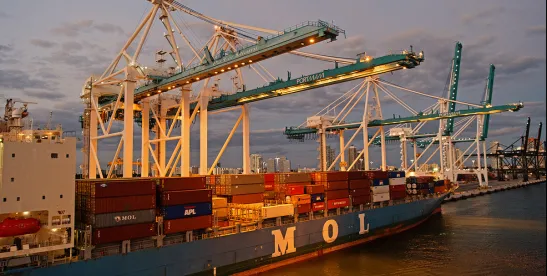The International Longshoremen's Association (“ILA”) members' strike, which consists of tens of thousands of port workers across the Atlantic and Gulf coasts, began at 12:01 a.m. Tuesday, October 1, 2024, as the union rejected employer group United States Maritime Alliance's (“USMX”) final proposal made on Monday, which fell short of the wages and protections against automation sought by ILA members.
The ILA represents more than 85,000 workers and has been negotiating since last May with companies, terminal operators, and port associations represented by USMX. Without a contract between the groups, as many as 45,000 members walked off the job at more than a dozen major ports, including facilities in New York, Philadelphia, and Texas.
The impacts and lasting effects of the strike are currently unknown. With about half of U.S. ocean imports passing through the East and Gulf coast ports, a wide range of products and industries are affected, including but not limited to produce, cars, auto and machinery parts, clothing, pharmaceuticals, wine and spirits, holiday goods (like toys), and seafood.
Ship crews should be sure to exercise due diligence in caring for cargo during the strike to minimize the risk of damages and claims. While cargo loss and corresponding damages caused by strikes, lockouts, and labor restraints are excused from liability under the Carriage of Goods by Sea Act (“COGSA”), the defense only applies to the extent the damage or loss is actually caused by the strike. A carrier is still exposed to liability for damage not caused by the strike unless another defense applies.




 />i
/>i

